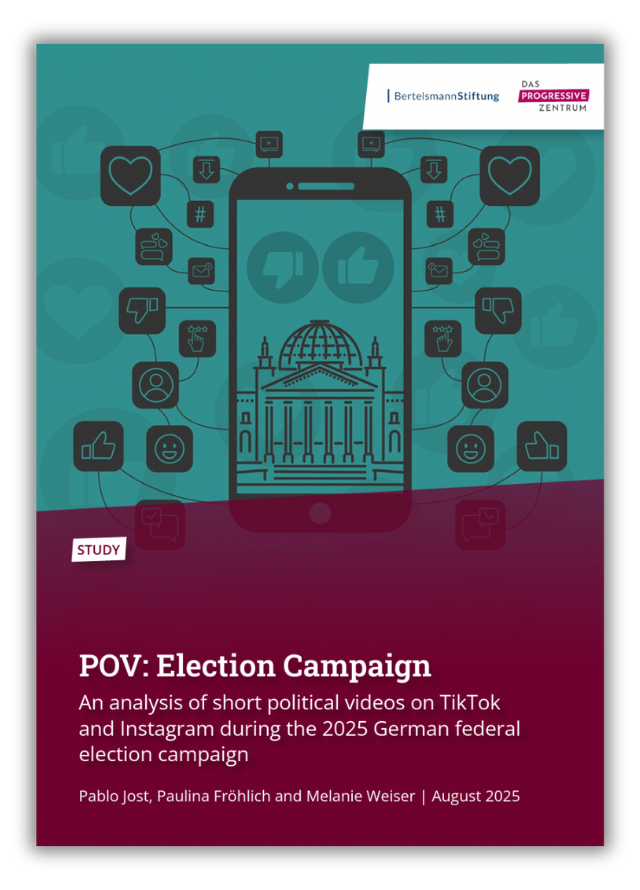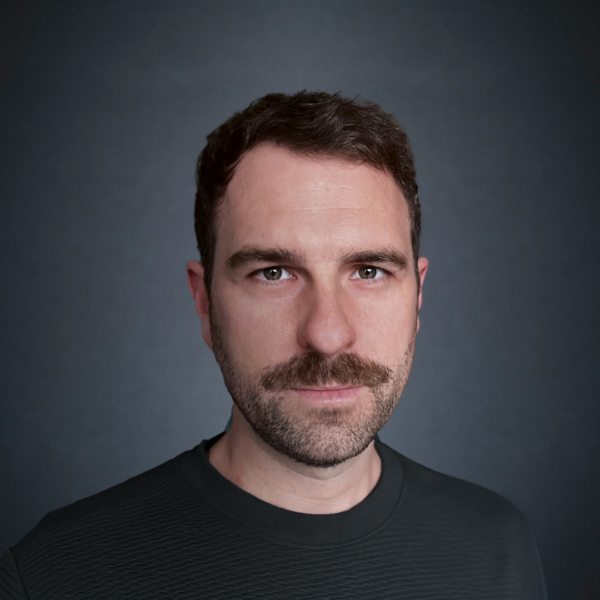In the 2025 German federal election campaign, short videos on social media platforms had extraordinary importance for reaching young voters. Instagram and TikTok were particularly at the centre of communication campaigns. Young people increasingly used short videos on both platforms to shape their political opinions.
Yet, while parties and politicians in Germany faced the challenges of campaigning on social media more than ever, there was still a lack of comprehensive analyses of political content and communication styles on these two platforms. Our study aims to change this and examines which communication styles, forms of address, topics, and tones were most prominent during the hot phase of the 2025 federal election campaign on social media, and which party-specific characteristics could be observed.
Findings
For the study, a total of 18,270 short videos (13,669 Instagram Reels and 4,601 TikToks) from 668 Instagram and 252 TikTok accounts of the parties and politicians of the 20th German Bundestag were analysed between January 1 and February 23, 2025.
Style and Address
- Platform-specific affordances: Parties and politicians used typical functions such as selfie mode (most often by the AfD) and infographics (especially by Die Linke). However, the overall use of affordances was relatively restrained.
- Youth reference and direct address: More than half of the posts (53 %) referred to young people and future generations; 76 % of the videos used direct forms of address regardless of age (“you”). Die Grünen and Die Linke addressed youth issues most frequently, while the AfD did so the least.
- Mobilisation through calls to action: Calls to vote dominated the forms of political mobilisation in short videos on social media. Around 50 % of all posts called for voter participation. Digital calls to mobilisation, such as sharing or liking content, were also comparatively frequent.
Topics & Tone
- Thematic focus: The election itself was by far the most frequent topic across all short videos (41 %). Without explicit reference to the election, the topics of migration (7 %) and the economy (6 %) followed.
- Tone: Overall, positive portrayals of a party’s own policies predominated (64 % of posts). However, content on TikTok was more confrontational than on Instagram: attacks on political opponents appeared almost 12 percentage points more often there. Moderate-democratic parties (CDU/CSU, SPD, Grüne, FDP, Linke) focused more on positive content, while AfD and BSW deliberately relied on polarisation and attacks. After the resolution on migration policy was passed, all parties temporarily adopted a harsher tone, but toward the end of the campaign returned to more positive, self-focused communication.
Our analysis shows that parties and politicians in the 2025 federal election campaign used Instagram and TikTok to systematically address and mobilise young audiences. Despite strong developments in the number and design of short videos – for instance, in the use of direct address and mobilising formats – there remains significant room for improvement in adapting to platform-specific communication styles in future campaigns. Migration once again proved to be a central and polarising issue, contributing to a harsher communication style – even among moderate-democratic actors. Overall, the study suggests that more professional, creative, and constructive use of social media will be crucial for the future success of political communication with young audiences.
Partner
The study “POV: Wahlkampf” is a joint work, created through close cooperation between the Bertelsmann Stiftung and Das Progressive Zentrum. In addition to the authors, Sibylle Gröbel, Amber Jensen, Kira Schrödel, and Hannah Fecher from the Bertelsmann Stiftung, Yannick Winkler from Johannes Gutenberg University Mainz, as well as Carla Agha Ebrahim and Jan Kjell Lange from Das Progressive Zentrum were involved in data collection and/or analysis.
The study is part of the project How to Sell Democracy Online (Fast) by Das Progressive Zentrum in cooperation with the Bertelsmann Stiftung and supported by Stiftung Mercator.

Authors
How to Sell Democracy Online (Fast)
The Disregarded
Full Speed Ahead: Progress in 2022+ – A Decade for a Just Transformation
Democratising Democracy: No Transformation without Democratisation
How to Sell Democracy Online (Fast)
How to Sell Democracy Online (Fast)

We develop and debate progressive ideas and bring together leading actors who turn thoughts into action. Our think tank’s goal: making the just transformation a reality. ▸ Learn more



